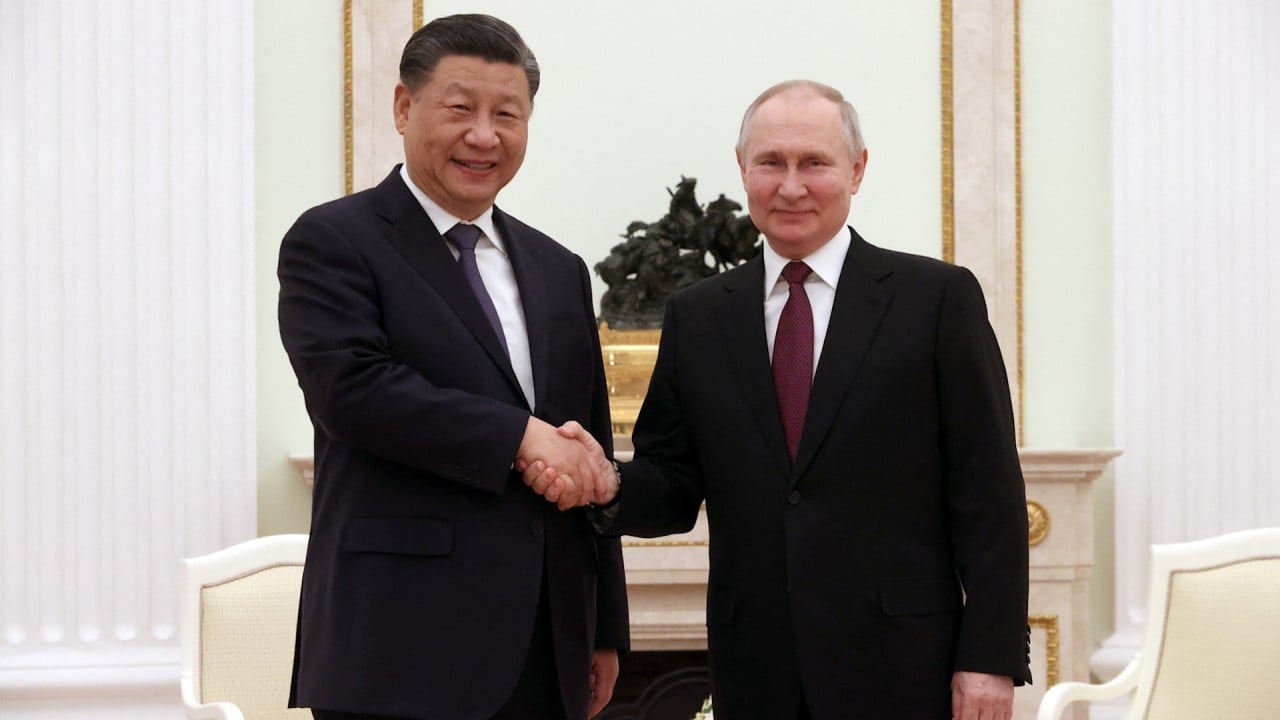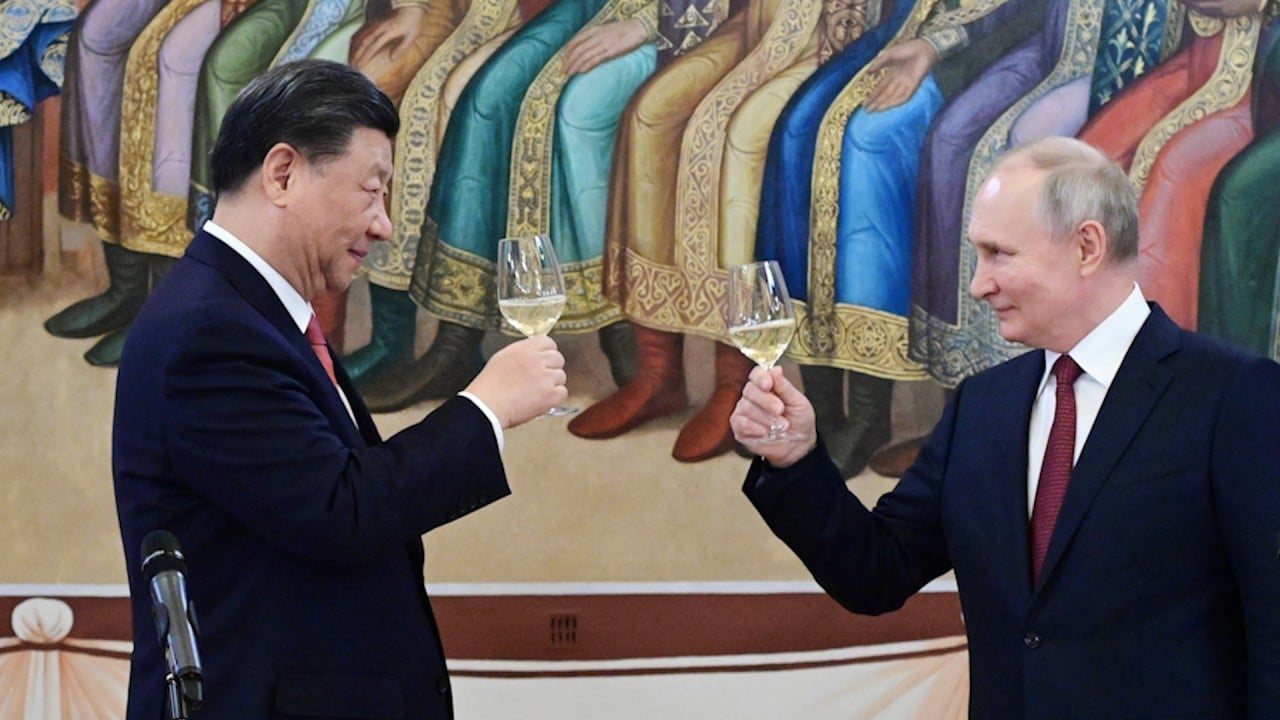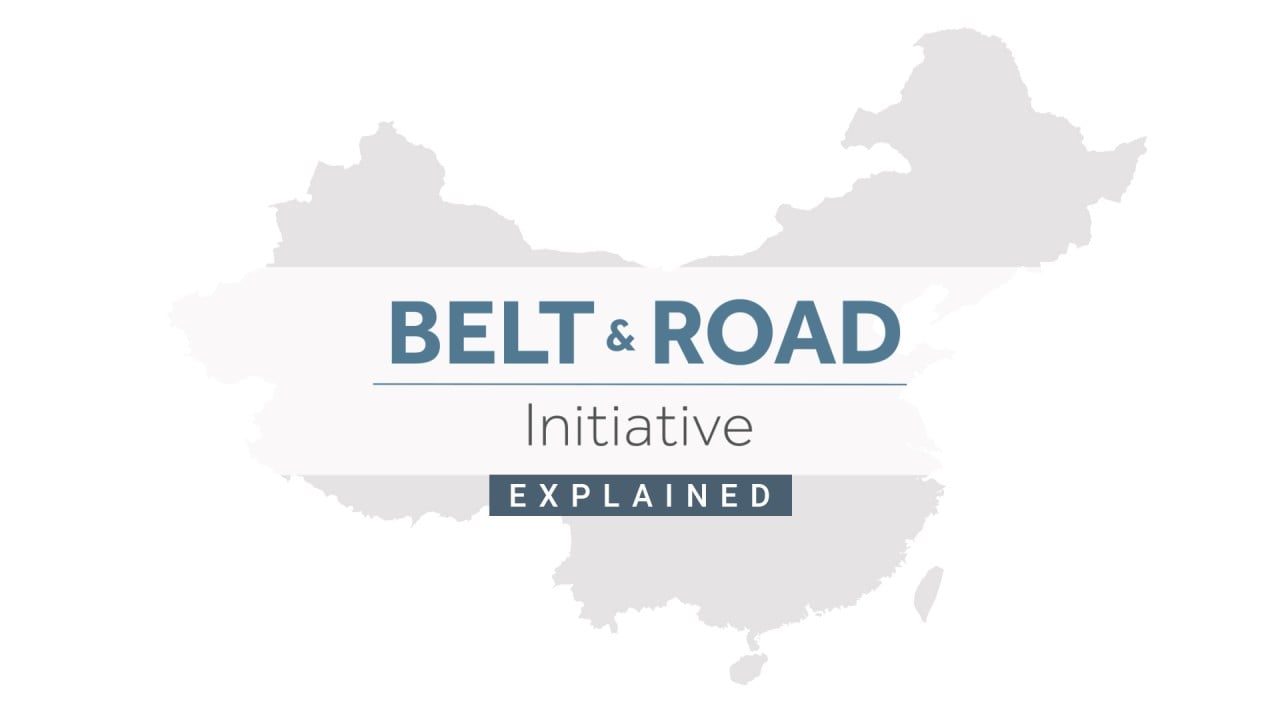
02:25
Xi Jinping in Moscow to discuss Chinese peace plan for Ukraine with Russia’s Vladimir Putin
China, Russia gas-pipeline statements raise questions on Power of Siberia 2 progress
- Russian President Vladimir Putin says agreement with China and Mongolia to build Power of Siberia 2 natural gas pipeline is ‘practically’ finalised, as Russia looks to divert gas from Europe to Asia
- But analyst says such deals between Russia and China ‘complicate the ongoing China-US confrontations’ and raise geopolitical risks among major economies
As China moves to intensify economic cooperation with its northern neighbour, Beijing says it will work with Moscow to advance a new natural gas pipeline on which Russia has pinned high hopes as it reroutes supplies from Europe to Asia.
It was also in contrast with a more assertive remark coming from Russian President Vladimir Putin earlier on Tuesday. When asked whether the project was a done deal, he said “practically all the parameters of that agreement have been finalised”, according to the Financial Times.
What does the Russia-Ukraine war mean for China’s energy security?
The pipeline, which plans to deliver 50 billion cubic metres of natural gas per year from Russia’s Yamal Peninsula in west Siberia to China via Mongolia, has been on the books of the three countries for decades. But the Ukraine war has resulted in a greater sense of urgency for Russia to push for a deal, as the country is losing its once-biggest energy buyer – Europe – for the invasion.
Russia Energy Minister Alexander Novak said on Tuesday that the Kremlin wished to sign the agreement as quickly as possible, according to state newswire Ria Novosti. He said last year that Power of Siberia 2 would replace Nord Stream 2 – a route for delivering gas to Europe that was finished in 2021 but put on hold since the war began – in Russia’s energy-trade landscape.
For China, the world’s biggest gas importer, while such a pipeline would improve its energy mix, it should factor in European concerns about long-term energy security for that region in the changing geopolitical and geoeconomic environments, according to Zha Daojiong, a professor of international political economics at Peking University.
“After all, the ongoing Russia-Ukraine conflict is a temporal phenomenon,” Zha said. “It is natural to see European preference for sourcing energy from its geographical neighbours – that includes Russia – in the future.”
Zha said that, as China has an omnidirectional economic diplomacy to pursue, it cannot just treat the pipeline as a bilateral or trilateral project.
But the Power of Siberia 2, which would be longer and more technically complex, may require further diligence in feasibility studies, especially against the backdrop of Western sanctions on Russia. Russian and Mongolian officials previously said that construction would start in 2024.
China and Russia have indeed traditionally been political allies. This will complicate the ongoing China-US confrontations and may impose higher geopolitical risks in relationships among China, Russia, US and Europe
In another joint statement by the two sides released early Wednesday morning in China, both said they would consolidate their energy partnerships, including by strengthening long-term cooperation and promoting the implementation of strategic cooperation projects.
Dong Jinyue, a senior China economist at BBVA Research, said that the finalisation of the new pipeline would further support the notion that China and Russia are getting even closer with each other in face of Western countries’ sanctions and confrontations.
“China and Russia have indeed traditionally been political allies. This will complicate the ongoing China-US confrontations and may impose higher geopolitical risks in relationships among China, Russia, US and Europe,” Dong said.
While pipeline gas is much cheaper than seaborne liquefied natural gas (LNG), and China does view land-based energy deliveries as more secure, an additional route with Russia may not be on Beijing’s near-term agenda.
‘We’re open and ready’: Mongolia prime minister courts global investors
China has been, in recent years, seeking to diversify its energy imports. On natural gas, it is also in negotiations with Central Asian countries, with a new gas pipeline from Turkmenistan via Tajikistan and Kyrgyzstan to fuel economic growth. Beijing also pledged to intensify domestic exploration in hopes of increasing domestic gas reserves and production.
According to demand projections for China by the International Energy Agency, once the Power of Siberia line ramps up to full capacity, it may no longer need another large-scale link with Russia.
In its World Energy Outlook 2022 report, the agency said China’s gas-demand growth was on track to slow to 2 per cent per year between 2021-30, compared with an average growth rate of 12 per cent per year since 2010, reflecting a policy preference for renewables and electrification over gas use for power and heat.
Meanwhile, Chinese importers have been actively contracting for new long‐term LNG supplies, and the existing contracted supply is adequate to meet projected demand until well into the 2030s, the report said.
Li Yonghui, a researcher at the Chinese Academy of Social Sciences, said the Power of Siberia 2 could facilitate connectivity of the three countries via China’s Belt and Road Initiative, an ongoing effort to link economies into a China-centred trade network.
“The pipeline is also an important, large-scale project among the belt and road projects, [and it] will provide more conditions for China to improve the quality of the Belt and Road Initiative, and to carry out other industrial layouts along this pipeline,” Li said.
On Tuesday, Putin also said Mongolia – sandwiched between China and Russia as the world’s second-biggest landlocked nation – had already signed off on the deal, the Financial Times reported. Reuters reported last week that the country’s prime minister, Luvsannamsrain Oyun-Erdene, said Mongolia would decide which part of its territory will be used to construct the pipeline once its two neighbours reach an agreement on costs.
Munkhnaran Bayarlkhagva, a former official with the National Security Council of Mongolia, said that while the country is hoping that gasification will offer a cheap solution to Ulaanbaatar’s perennial air pollution, the pipeline also raises political concerns.
“Mongolia is also most at risk here, since double-dealing behind Ulaanbaatar’s back may involve Moscow-Beijing cooperation on Mongolia’s democracy and ontological security issues such as its Tibetan Buddhism,” Bayarlkhagva said.




